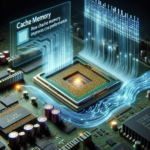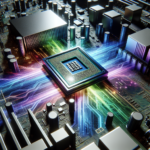CPU Cooling Solutions: Air vs. Liquid Cooling

CPU Cooling Solutions: Air vs. Liquid Cooling
As the performance demands on modern CPUs continue to rise, effective cooling solutions have become more critical than ever. Overheating can lead to reduced performance, system instability, and even hardware damage. Two primary methods dominate the market: air cooling and liquid cooling. This article delves into the intricacies of both, comparing their advantages, disadvantages, and suitability for different use cases.
Understanding CPU Cooling
Why CPU Cooling is Important
CPUs generate a significant amount of heat during operation. Without adequate cooling, this heat can cause thermal throttling, where the CPU reduces its speed to prevent overheating. In extreme cases, it can lead to permanent damage. Effective cooling ensures that the CPU operates within safe temperature ranges, maintaining performance and longevity.
Types of CPU Cooling Solutions
There are several methods to cool a CPU, but the two most common are air cooling and liquid cooling. Each has its own set of characteristics, benefits, and drawbacks.
Air Cooling
How Air Cooling Works
Air cooling uses a combination of heatsinks and fans to dissipate heat. The heatsink, typically made of aluminum or copper, absorbs heat from the CPU. The attached fan then blows air over the heatsink, dispersing the heat away from the CPU and into the case, where it is expelled by case fans.
Advantages of Air Cooling
- Cost-Effective: Air coolers are generally less expensive than liquid coolers, making them a popular choice for budget-conscious users.
- Ease of Installation: Installing an air cooler is straightforward and usually requires no special tools or expertise.
- Reliability: With fewer moving parts and no risk of leaks, air coolers are often more reliable over the long term.
- Maintenance: Air coolers require minimal maintenance, usually just occasional dusting.
Disadvantages of Air Cooling
- Noise Levels: Air coolers can be noisy, especially under heavy loads, as the fans ramp up to dissipate heat.
- Size and Weight: High-performance air coolers can be large and heavy, potentially causing compatibility issues with smaller cases or motherboards.
- Cooling Efficiency: Air cooling is generally less efficient than liquid cooling, particularly for overclocked or high-performance CPUs.
Liquid Cooling
How Liquid Cooling Works
Liquid cooling systems use a liquid coolant to transfer heat away from the CPU. The coolant circulates through a closed loop, passing through a water block attached to the CPU, a radiator, and a pump. The radiator, equipped with fans, dissipates the heat from the coolant before it is recirculated.
Advantages of Liquid Cooling
- Superior Cooling Performance: Liquid cooling is more efficient at transferring heat away from the CPU, making it ideal for high-performance and overclocked systems.
- Quieter Operation: Liquid coolers generally produce less noise than air coolers, as the fans do not need to work as hard to dissipate heat.
- Aesthetic Appeal: Many liquid cooling systems feature customizable RGB lighting and sleek designs, adding a visual appeal to custom builds.
- Space Efficiency: Liquid coolers can be more compact than high-end air coolers, freeing up space inside the case.
Disadvantages of Liquid Cooling
- Cost: Liquid cooling systems are typically more expensive than air coolers, both in initial cost and potential maintenance.
- Complex Installation: Installing a liquid cooling system can be more complicated, often requiring more time and technical know-how.
- Risk of Leaks: Although rare, there is a risk of leaks, which can cause significant damage to other components.
- Maintenance: Liquid coolers may require periodic maintenance, such as refilling the coolant or checking for leaks.
Comparing Air and Liquid Cooling
Performance
When it comes to raw cooling performance, liquid cooling generally has the edge. The superior heat transfer capabilities of liquid coolers make them more effective at maintaining lower CPU temperatures, especially under heavy loads or overclocking conditions. However, high-end air coolers can still provide excellent performance for most users.
Noise Levels
Liquid coolers tend to be quieter than air coolers because the fans on the radiator do not need to spin as fast to dissipate heat. This can be a significant advantage for users who prioritize a quiet computing environment. However, some high-quality air coolers are designed to operate quietly as well.
Cost
Air coolers are generally more affordable than liquid coolers. For users on a budget or those building a mid-range system, air cooling offers a cost-effective solution without sacrificing too much performance. Liquid coolers, while more expensive, provide better cooling efficiency and are often worth the investment for high-performance or overclocked systems.
Installation and Maintenance
Air coolers are easier to install and require less maintenance than liquid coolers. Most air coolers can be installed with basic tools and minimal technical knowledge. Liquid coolers, on the other hand, can be more complex to install and may require periodic maintenance, such as checking for leaks or refilling the coolant.
Reliability
Air coolers are generally more reliable due to their simpler design and lack of moving parts. The risk of mechanical failure or leaks is minimal. Liquid coolers, while reliable, do carry a small risk of leaks, which can cause damage to other components. However, modern liquid coolers are designed with safety features to minimize this risk.
Choosing the Right Cooling Solution
For Budget Builds
If you are building a system on a tight budget, an air cooler is likely the best choice. They offer good performance at a lower cost and are easier to install and maintain. Look for reputable brands and models with positive reviews to ensure you get a reliable product.
For High-Performance and Overclocked Systems
For high-performance systems or those that will be overclocked, a liquid cooler is often the better choice. The superior cooling performance can help maintain lower temperatures, improving stability and extending the lifespan of your components. Be prepared for a higher initial cost and potential maintenance requirements.
For Quiet Computing Environments
If noise levels are a concern, a liquid cooler may be the best option. The quieter operation can make a significant difference in a home office or gaming setup. However, some high-quality air coolers are designed to operate quietly and may also be suitable.
FAQ
Is liquid cooling better than air cooling?
Liquid cooling generally offers better cooling performance and quieter operation compared to air cooling. However, it is also more expensive and can be more complex to install and maintain. The best choice depends on your specific needs and budget.
Can air coolers handle overclocking?
High-end air coolers can handle moderate overclocking, but for extreme overclocking, a liquid cooler is usually more effective at maintaining lower temperatures and ensuring system stability.
Are liquid coolers prone to leaks?
While the risk of leaks exists, modern liquid coolers are designed with safety features to minimize this risk. Proper installation and regular maintenance can further reduce the likelihood of leaks.
How often should I maintain my liquid cooler?
Maintenance requirements vary by model, but generally, you should check for leaks and ensure the coolant levels are adequate every 6-12 months. Some closed-loop systems are designed to be maintenance-free for several years.
Do air coolers require any maintenance?
Air coolers require minimal maintenance, usually just occasional dusting to keep the heatsink and fans clean. This helps maintain optimal airflow and cooling performance.
Conclusion
Choosing between air and liquid cooling depends on your specific needs, budget, and preferences. Air coolers offer a cost-effective, reliable, and easy-to-install solution suitable for most users. Liquid coolers provide superior cooling performance and quieter operation, making them ideal for high-performance and overclocked systems. By understanding the advantages and disadvantages of each, you can make an informed decision that best suits your computing needs.




